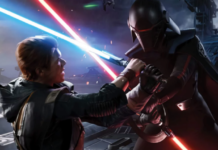Paradox Explores Medieval Warfare in the RTS Title, Two Thrones
“I think people are intrigued by the fact
that they can be a part of the changes in history”
Insert yourself into the rich tableau of
history, control armies and perhaps you can change the history of the world.
That is the idea behind the release of a lot
of real-time strategy titles. It is becoming rather prevalent in the genre to
take an exciting phase of history and insert players into it with all the assets
that existed in that time frame at their disposal. Will players remake or repeat
history?
It is, in essence, a grand chess match.
Two Thrones, from Strategy First and Paradox,
takes that leap into history and serves up a unique setting. The game captures
Europe during the 100 Years War and Great Britain during the War of the Roses.
In the years of 1337-1490, the nobility and church ruled the world. The king of
England coveted the throne of France and locked the two nations into a long war,
punctuated by fits of peace, before finally finding the measure of a lasting
truce.
Game features include a range of nations or
provinces to play as including England, France and Burgundy; the ability to
develop your kingdom into an economic, political and military power, while still
maintaining a balance with the church, nobility, peasants or the merchant class;
political intrigue; the ability to recruit and train military units; and the
ability to play on a local-area network or the Internet with up to six players.
Fredrik Lindgren, Head of Sales and Marketing
at Paradox, talked with GameZone.com about this title.

Question: Explain a little about the
concept behind Two Thrones? What made you select the era of the 100 Years War
and War of the Roses for this title?
Fredrik: Initially we created Crown of
the North, a game about the Scandinavian 12th century civil war, on the same
engine, and we wanted to find a more all-European environment for the game. The
100 Years War, and War of the Roses are symbols of an era known to most people
from books and movies. It is the prime of the Medieval Age and therefore should
be appealing to most people interested in that era.
Q: A host of games are being released that
have some historical backdrop. How will this game distinguish itself? What do
you think fascinates gamers about the opportunity to rewrite history?
Fredrik: This game is easy to start up,
yet challenging to master. Just like having the opportunity to coach your own
football team in Sports games, people love to see "what could I have done
better" in historical challenges. Even if the game in itself is not an accurate
description of reality, it can act as a mirror for "what if" scenarios. I think
people are intrigued by the fact that they can be a part of the changes in
history in our games.
Q: What elements do you consider essential
to a founded RTS and how does Two Thrones fit that bill? Is the combat
turn-based or real time? Will terrain elements and/or weather have any bearing
on the outcome of conflict?
Fredrik: “The battles are in real-time
and terrain elements play a key part in the battles, since some unit types
prefer woods and others open fields. An RTS should contain elements of strategic
thinking as well as battle moments, I think Two Thrones could have even more
battle elements, but the strategy part is quite challenging.

Q: How much control will players have over
the armies participating in the battle?
Fredrik: The player will not directly
control the units in the battle; it is handled by our battle system.
Q: What graphics engine does this game use,
and what did it allow you to do to give this game a unique look?
Fredrik: We used the engine from Crown
of the North, but the maps are always developed separately in order to give each
game its own look and feel.
Q: How did you manage to blend the aspects
of historical politics and economic issues into this title?
Fredrik: We have added some historical
events specific for the period, and the economic system is pretty
straightforward with income from your provinces.
Q: What aspects of this game do you find
the most intriguing?
Fredrik: Balancing the stands is not
always so easy, and the most challenging part of the game is playing one of the
smaller factions/countries. That’s makes winning quite tricky.







